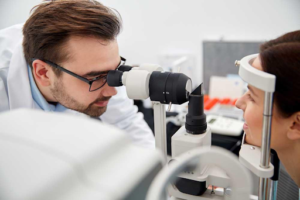The Role of Support and Treatment Centers in Comprehensive Cancer Care

A cancer diagnosis alters the life course for patients and affects their emotional state, physical condition, and financial circumstances. During medical treatment patients and their family members seek superior healthcare services to improve the quality of life. Patients benefit most when medical treatments combine with emotional support and rehabilitation services to enhance the overall outcomes.
This article examines why cancer treatment centers with support structures play a vital role in delivering complete medical care for cancer patients. To learn more in detail, keep reading this guide till the end.
Cancer Support Treatments for Holistic Healing
The scope of cancer care moves past standard medical procedures because it requires providing emotional help alongside psychological and lifestyle resources. The collection of Cancer support treatments includes counseling, nutritional advice, and pain control methods with the addition of alternative therapies through acupuncture and meditation.
Treatment modalities help cancer patients to control stress levels and minimize side effects which enables them to preserve their quality of life through the entire disease process. Moreover, patient-focused cancer support plans developed at cancer centers assist individual patients with their distinct needs.
Choosing the Right Cancer Treatment Center
Picking an appropriate cancer treatment center is vital for getting effective medical care. Exceptional healthcare institutions offer state-of-the-art medical approaches that include chemotherapy, immunotherapy, radiation therapy, and surgical procedures.
Such facilities serve as gateways for experienced oncologists, specialized nursing staff, and innovative research programs. Patients need to evaluate different treatment possibilities, facility locations, insurance options, and patient reviews to pick a center that best meets their healthcare needs. In a similar way, selecting the right ghostwriter bachelorarbeit can be crucial for academic success, as careful research and consideration of available options ensure the best match for one’s requirements.
The Role of Family and Caregivers in Cancer Recovery
The recovery process of cancer patients heavily relies on the involvement of their family members and caregiving support networks. Getting support from family members considerably improves emotional health during cancer treatment while enhancing medicine compliance.
Caregivers support patients in performing basic tasks, developing nutritional dietary preparation, and regarding medical movement assistance, while also serving as emotional anchors during the treatment period. Multiple caregiver support programs exist to assist people who help loved ones receive medical treatment.
Advances in Cancer Treatment and Future Innovations
Cancer treatment benefits from recent medical progress which results in higher patient survival probabilities and improved living quality during their journey with cancer. The cancer treatment landscape is undergoing major changes because of targeted therapy, personalized medicine, and AI-driven diagnostics.
Continuous medical research and clinical trials create the possibility of finding better invasive treatment options. The most recent medical discoveries enable patients alongside their families to base their healthcare decisions on knowledgeable considerations.
Conclusion
To sum up the above discussion, it can be concluded that the treatment of cancer requires receiving clinical medicinal care, psychological support, and access to current therapeutic approaches. Cancer support treatments increase patient well-being and the right cancer treatment facility delivers necessary medical services.
Family involvement combined with recent medical advancements leads to more favorable patient results. When cancer patients investigate every possible resource they gain hope for confidently moving through their treatment process.


